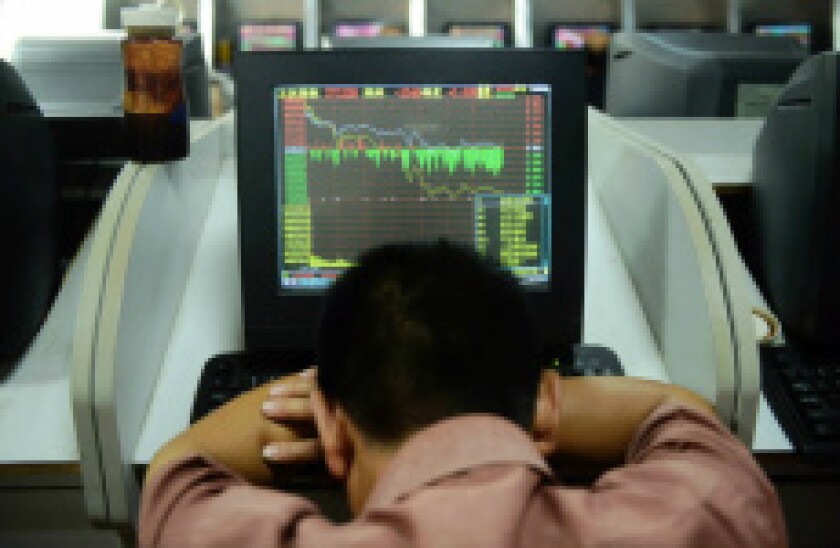Japan’s SoftBank Group Corp offloaded some of its stake in Chinese e-commerce behemoth Alibaba to great success last Thursday, netting $8.9bn in total from five separate transactions including the $5.5bn EB.
The deal will no doubt remain on the lips of bankers for a while, seeing as it was not only the largest equity-linked deal globally since 2010, but also employed a rarely-seen structure in Asia.
Elsewhere, a bouquet of block sales were launched last week, four of them handled solely by Morgan Stanley. These included transactions in PC maker Lenovo Group, Korea’s Doosan Heavy Industries & Construction, US-listed China Biologic Products and India’s Idea Cellular. The four trades raised close to $880m between them.
Keen to ride this momentum, equity bankers are looking for a window for more share sales this week.
And who can blame them? Volumes have fallen off a cliff and banks are hoping to make up for lost time before the summer and blackout periods commence, pushing deals further into the year and making an already bad first half look even worse.
ECM volumes in Asia ex-Japan ex-onshore China year-to-date are now at $24.98bn via 381 deals, according to Dealogic. This is down 68% from the same period a year ago. But if 2015 is not a good comparison because China’s A-share rally helped fuel record volumes last year, then it is worth noting that 2016’s volumes are still lower than any of the comparable periods since 2011.
The reality is that last week’s burst of deals, perhaps with the exception of Alibaba, were less a sign of confidence than of necessity. Neither side has much choice — issuers need the capital and investors have to put their money somewhere.
Here’s another grim reality: banks are likely to continue to face a hard slog in Asia ECM. Even as deals make it out of the gate, the feeling among investors continues to be one of caution.
IPOs have not escaped unscathed. BOC Aviation, arguably the year’s first real test of institutional demand for large Hong Kong IPOs, was trading at HK$39.50 on Monday afternoon versus its listing price of HK$42. Singapore’s Manulife US Real Estate Investment Trust priced its float last month at $0.83 a share, and its stock was at $0.79.
That may not sound like a huge deterrent to long-term investors. Yet the fact that IPOs — which are meant to price at a discount to their listed peers — have drifted down so soon after listing is hardly an encouraging sign for those hoping to follow suit.
It does not help that there appears to be some misreading of the market. Like the two IPOs, a good number of the blocks that priced last week dropped in secondary to below their issue prices. While bankers can blame the poor post-trade performance on market forces, it nonetheless speaks poorly of execution.
At a time like this the sensible thing to do — instead of pricing for perfection — would be to leave more on the table for investors.
No doubt there will be more periods this year when ECM activity defies the overall sense of malaise in the market. But the truth remains that markets are, and will for the near future continue to be, trying. And there isn’t much anyone can do to fix that.

